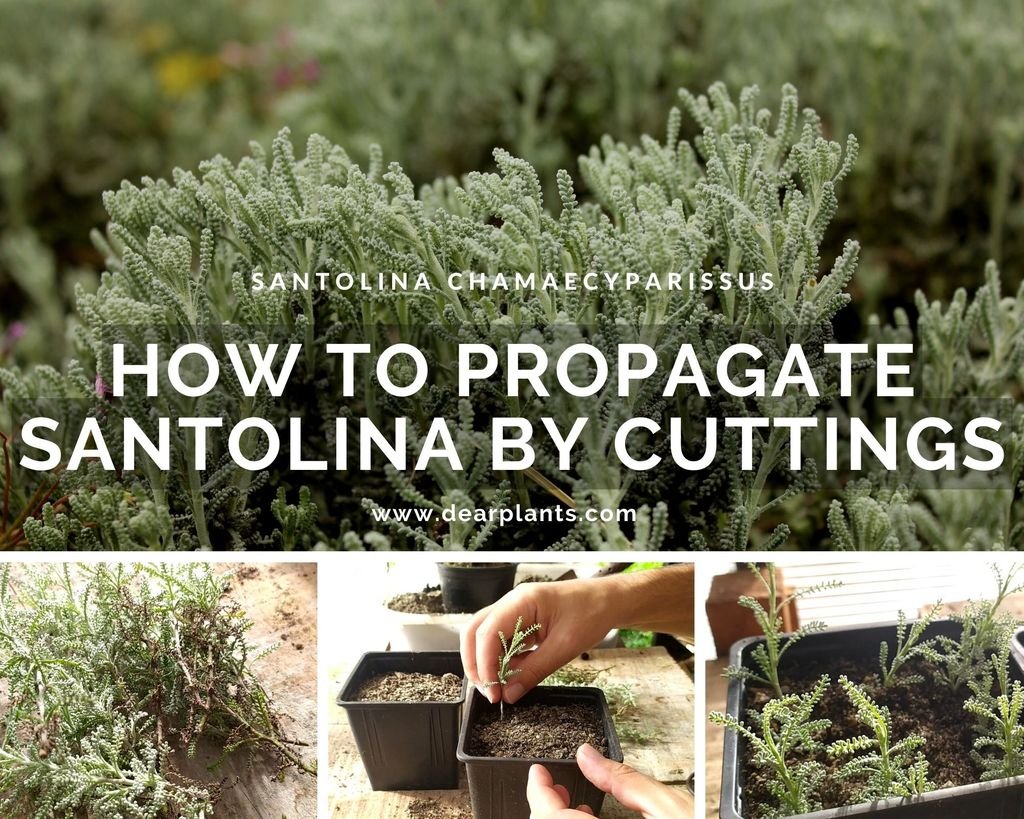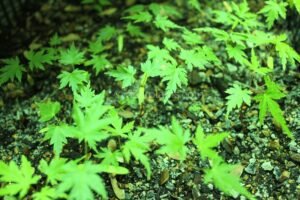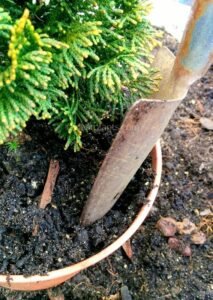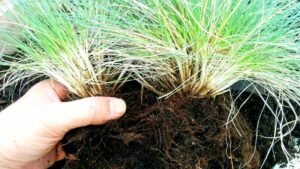In this guide we will learn step by step how to propagate santolina by cuttings and get free plants.
Santolina chamaecyparissus, also known as cotton lavender, are aromatic shrubs that can be propagated by semi-hardwood cuttings. This is a great way to increase the number of plants without spending money.
Semi-hardwood cuttings are usually taken from mid-summer to early autumn.
Select branches that grew this year that are hard and woody at the base but soft and green at the tip.
That’s why they are called semi-mature or semi-hardwood cuttings.
Before taking the cuttings, you should prepare the compost and containers for planting them.
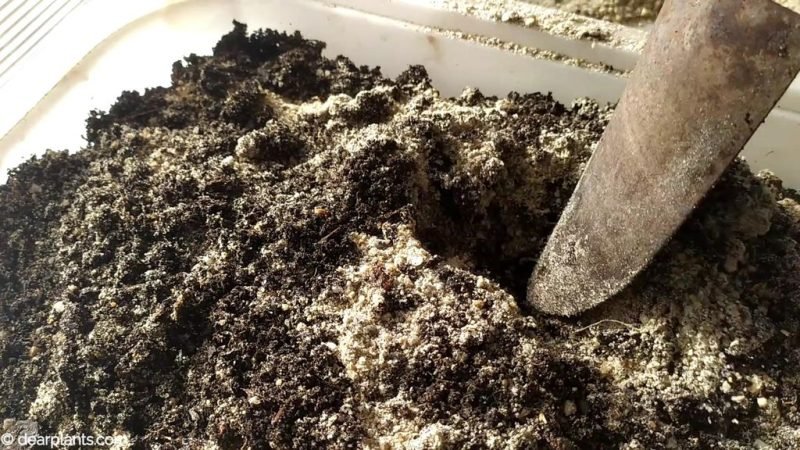
The recipe I use is generic potting compost mixed with coarse sand.
But perlite, pine bark, gravel and other materials capable of retaining moisture and at the same time draining well can be used.
I try to use the simplest and cheapest things available here.
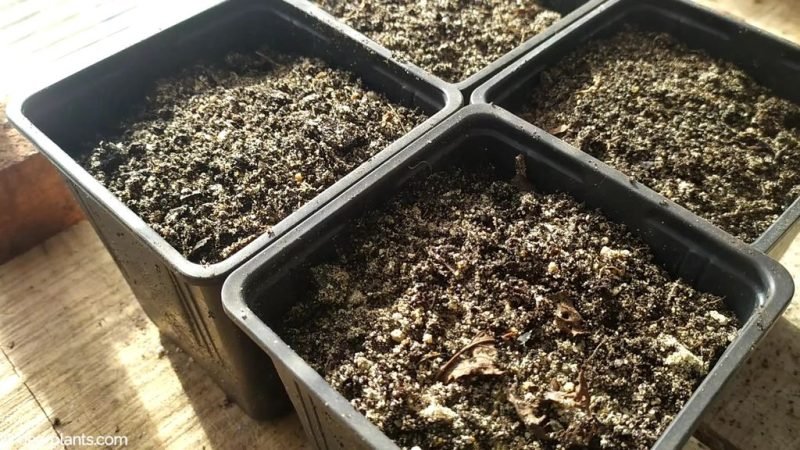
How to prepare santolina semi-hardwood cuttings
The best time of day to harvest the cuttings is in the morning. In the morning the temperature is lower and the plants are more hydrated.
[pullquote-right]When harvesting cuttings, store them in a plastic bag to reduce dehydration[/pullquote-right]
The cuttings should be 7 to 10 cm long and should be cut with a sharp blade just below a node.
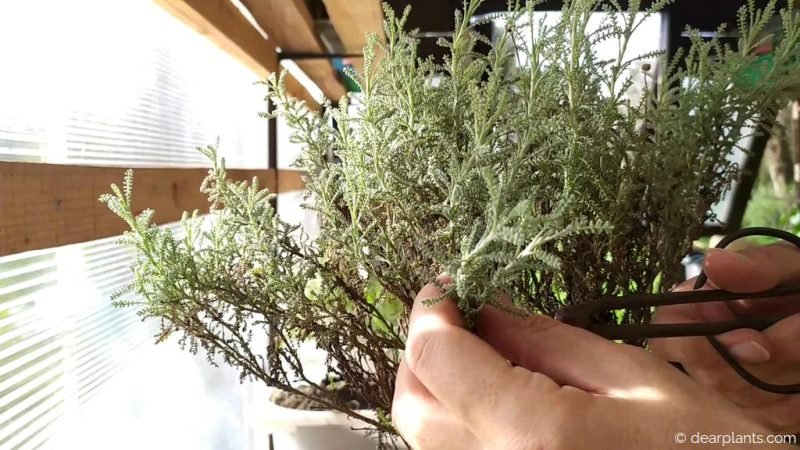
In this case, we collect larger branches with scissors and we will cut them to the right size when planting.
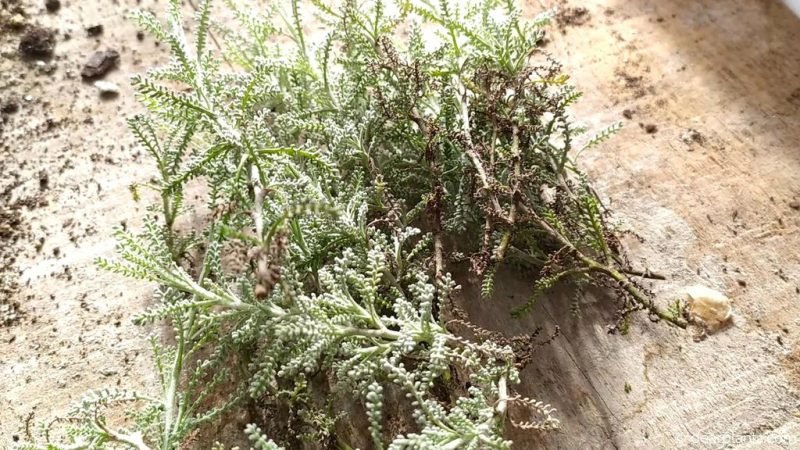
Remove the bottom leaves. I hold the stake with one hand and with the fingers of the other I remove the lower two thirds of the leaves to the base.
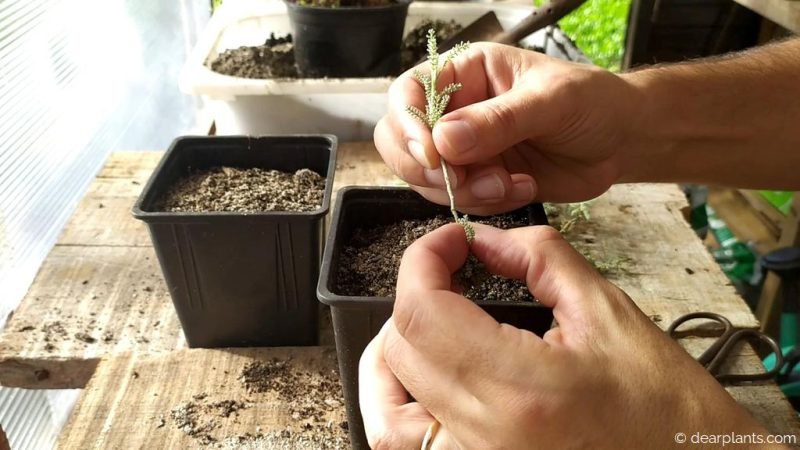
This will expose the tissues of the small branch where the roots will grow.
How to plant santolina cuttings
While not absolutely necessary for santolina propagation, you can soak the base of the cutting in rooting hormones to increase the success rate.
Insert the cutting into the soil (you may need a pencil or a stick to open the hole).
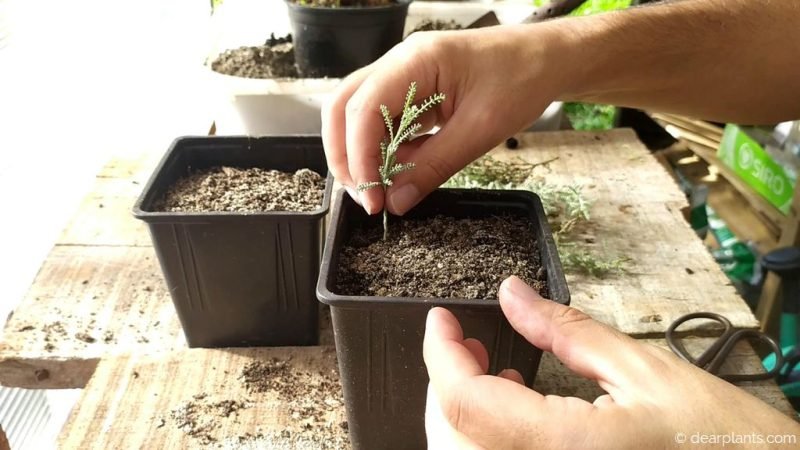
Put the compost around the cutting to make good contact, but don’t press too hard.
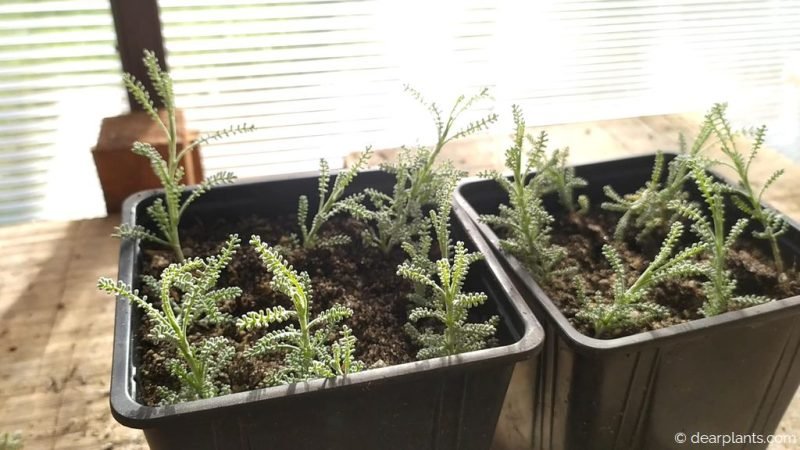
Water the pot and label it with the name of the plant.
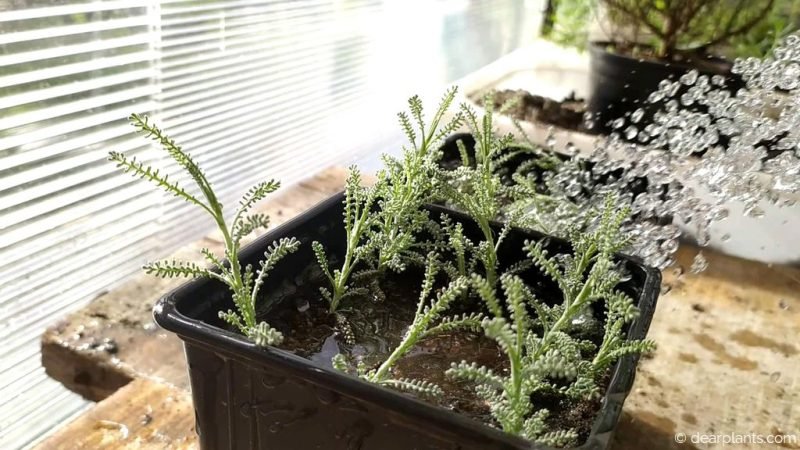
Place the pots in a cool place, protected from direct sunlight and especially from strong wind. Inspect the cuttings periodically to remove any dead leaves. Remember to keep the compost slightly moist (never soaking wet).
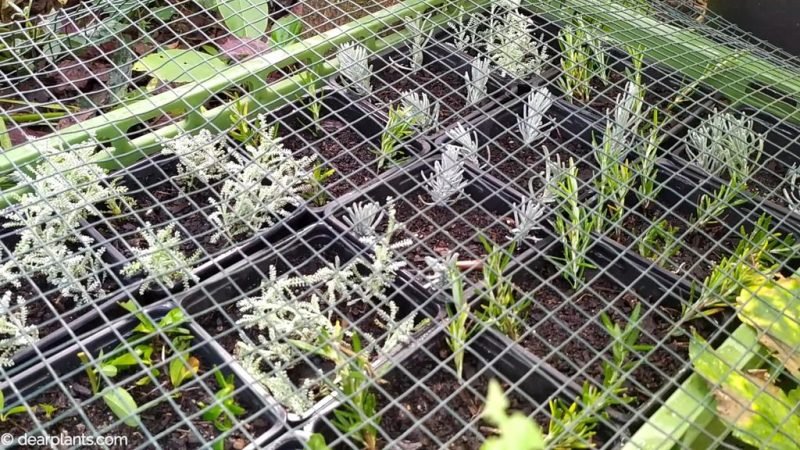
Try this technique also with other shrubs like rosemary or lavender. We would like to know if this technique worked for you. Tell us about your experience in the comments section below.
